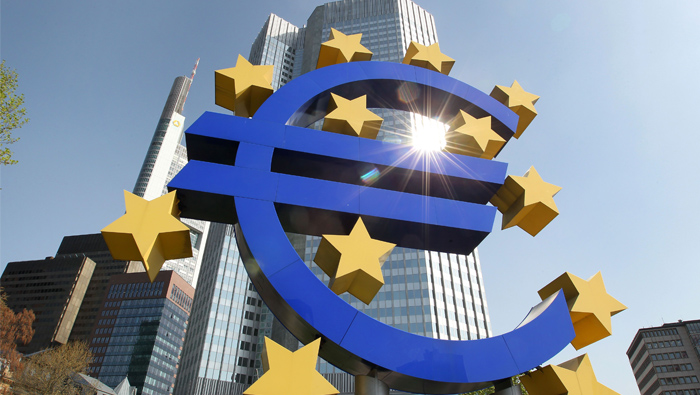
Frankfurt: European Central Bank (ECB) is coming to terms with the idea that its near-2 per cent inflation goal won't be materialising anytime soon.
Bank staff downgraded their outlook to 0.1 per cent headline inflation this year, forecasts released showed, with price pressures rising to 1.6 per cent by 2018 — still short of policy makers' goal. In their December projections, they expected to hit 1 per cent this year and 1.6 per cent in 2017.
"I think it shows some realism from the ECB," said Anatoli Annenkov, senior economist at Societe Generale in London, after Draghi announced a package of rate cuts and expanded asset purchases. It also keeps the door open for easing, he said, because "the fact that they put 1.6 at the end forecast almost begs the question — why didn't they do more?"
This is a near-term concern for ECB president Mario Draghi Draghi. He said that energy prices suggest that inflation will remain in negative territory and only pick up later in 2016.2. Growth recovery
Draghi said that in order to return to price stability, the euro area first needs to close its output gap, or the difference between potential and actual growth. It's getting there, he said, with output gains that are "not spectacular," but ongoing.
"It's going to take time because it would be foolish to think that we go back to inflation, to 2 percent or below 2 percent, with an economy that hasn't recovered yet," Draghi said.
When it comes to the prospects for inflation in a low- growth environment, Draghi sounds more hopeful than former ECB Governing Council member Luc Coene. Coene, now a representative at the Supervisory Board of the Single Supervisory Mechanism, questioned the ECB's entire inflation-targeting framework, in an interview with Belgian newspaper De Tijd published Friday. "The ECB must ask itself whether its inflation target of 2 per cent is still realistic" as memories of 2 per cent to 3 per cent growth fade, he said. 3. Wages
Draghi noted that while increases in wages haven't yet materialised in a "significant way in the euro area," they need to arrive on the road to higher inflation. The takeaway? Draghi isn't despairing about inflation, but he's increasingly admitting that it could be a long time coming.
That said, the ECB didn't fully account for the anticipated effects of its newly unveiled unconventional monetary policies in this round of inflation forecasts, unlike when it unveiled the quantitative easing (QE) programme for the first time last year. So that means there could be an upside surprise in the next round of forecasts due in June, if the package of rate cuts and bond purchases announced on Thursday has the desired effect.
Corporate bonds
Meanwhile, the ECB's decision to buy corporate bonds will be a boon for investors but may have a muted impact on inflation given the small size of that market and its tenuous link to the broader economy.
The ECB, which so far bought bonds issued by governments and other public entities, announced on Thursday it would purchase the debt of private companies provided they are based in the eurozone, have an investment grade rating and are not banks.
Draghi said the move would ease financing conditions in the real economy, presumably by lowering yields on corporate bonds -- effectively making it cheaper for companies to borrow money on the market.
Indeed, yields on bonds issued by euro zone non-financial companies fell sharply on Thursday. However, the market for such notes is small and is mainly made up of large corporations that have enjoyed low financing costs for years and, in some cases, sit on large cash piles.
The ECB has not said how many bonds it will buy or how large it estimates the market to be. "Speculation is that it could be in the region of 5 billion euros ($5.59 billion) per month," Tanguy Le Saout, head of European fixed-income at Pioneer Investments, said.
This would be a small portion of the ECB's monthly purchases, which were increased to €80 billion on Thursday. It may represent a significant slice of the market for such bonds, however.
In a note earlier this year, Barclays analysts said bonds from non-financial institutions that would meet the ECB criteria amounted to €480 billion, adding an ECB move into this market would have negligible effect on credit conditions.
What the ECB will achieve is an expansion the assets it can buy, easing fears it may run out of eligible targets. It will likely also lead investors currently holding corporate bonds into higher-yielding assets such as stocks.
This process, known by central bankers as portfolio-rebalancing, has been the most visible result of central banks' quantitative easing programmes across the world, fuelling rallies in major markets between 2012 and 2015.
It is supposed to finance corporate investment but its impact on the real economy has been small. Many companies have preferred to buy back shares or even sit on their cash, rather than put money to work while growth prospects remain poor.